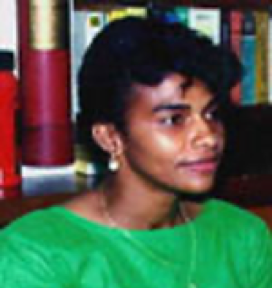Interests:
1. Mechanisms of inorganic and organometallic reactions.
Synthesis and reactivity of molybdenum and ruthenium complexes and their applications as catalysts, models for enzymes and participants in atom-transfer reactions.
2. Chemical Education
The overall goal of Dr. Sadler McKnight's research is to design, and validate instruments to measure different dimensions of student learning, both cognitive and affective and to implement innovative strategies that that will allow for a better understanding of how to improve instruction in chemistry, especially against the background of the changing demographics and learning styles of university students. Current projects focus on Peer Led Team learning, the use of the Science Writing Heuristic approach in undergraduate laboratory, understanding the science culture nexus in schools.
There are two main areas of research in Dr. Sadler McKnight's group: the synthesis and mechanisms of inorganic reactions and chemical education.
The group's research on inorganic reactions is focused on transition metal complexes, with particular interest in cobalt, ruthenium, chromium and molybdenum. The aim is to make complexes containing these metals for use as catalysts and model enzymes for biological systems. The group studies the mechanisms by which the complexes react in the presence of reductants and oxidants in aqueous and non- aqueous solution. Currently, the group is investigating the synthesis and reactions of bi-nuclear molybdenum V/V complexes in the presence of peroxides and reducing agents as mimics for biological enzymes. Instrumental methods applied in these studies include infrared, UV-visible and atomic absorption spectroscopy, as well as x-ray crystallography.
The other major interest - Chemical Education - involves the design and implementation of innovative, constructivist, instructional strategies to improve instruction in Chemistry at the tertiary level. Current strategies - the Peer-led Team Learning (PLTL) Workshops and the Science Writing Heuristic (SWH) Approach - target first-year Chemistry students. These projects examine three dimensions of student learning – cognitive, attitudinal and affective – with a view to developing various skills in these areas. The ultimate goal is to deepen the students' knowledge and understanding of Chemistry, their critical thinking, problem- solving and transferable skills. A combination of quantitative and qualitative research designs are used to assess the impact of these interventions. Results to date have indicated that these constructivist strategies have positive impacts on student learning and development.
As a minor research interest, the group is involved in a joint project with the School of Education to examine socio-cultural factors which affect student learning of science.

